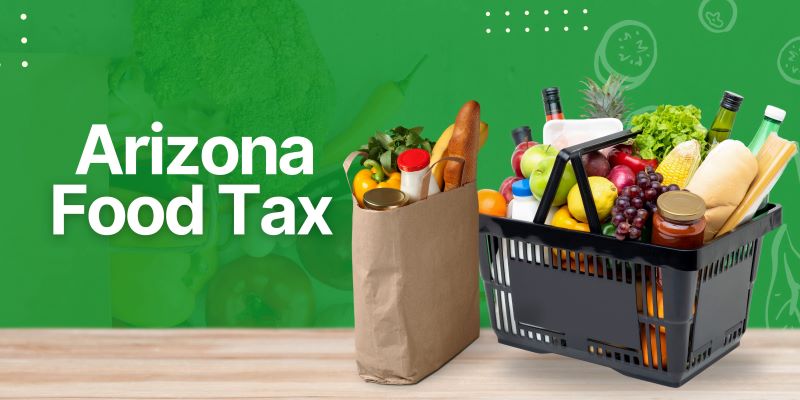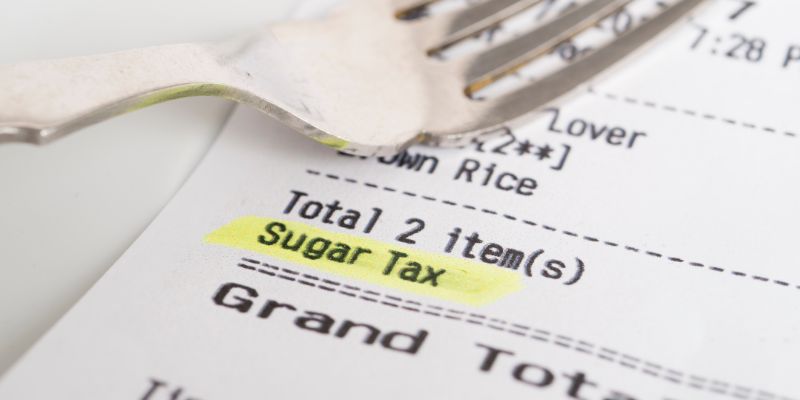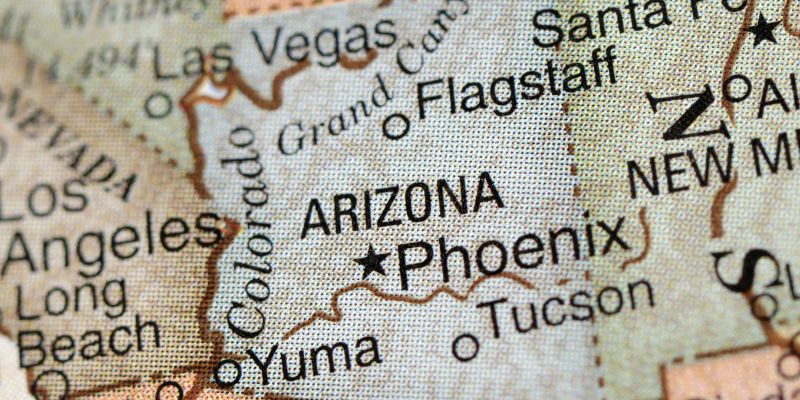How Much Is The Food Tax In Arizona?
Did you know that the cost of your groceries or dining out in Arizona might include a food tax depending on where you shop or eat? It's not the same everywhere; basic groceries aren't always tax-free.
Arizona's food tax rules can be confusing, as some things are not taxed, while even minor things can have a sales tax. This article explains how food taxes work, which areas charge extra, and what you can expect when buying groceries or enjoying a meal.

What Is a Food Tax?
A food tax is a charge added to the price of food items you buy. It's similar to a sales tax but applies explicitly to food. In some cases, this tax is only added to prepared food, like meals at restaurants or deli items from grocery stores. The food tax rules in Arizona are unique because not all food is taxed. For example, groceries like bread, milk, and fresh produce are often exempt. However, some cities may apply a tax even on groceries. This makes understanding the rules in your area necessary.
Why Food Tax Rules Vary In Arizona
Food tax rules differ in Arizona because of the way taxes are managed. While the state government sets some rules, individual cities and towns can decide their tax rates. For example, one city might tax groceries while a neighbouring town does not. Local governments use these taxes to fund public services like road repairs, parks, and emergency services. Because of this, tax rates can vary widely depending on where you live or shop.
Tax Rates For Different Types Of Food In Arizona

Groceries
In Arizona, groceries like fruits, vegetables, and packaged foods for home use are generally exempt from state taxes. Under this system, most grocery items will not have a tax charge when buying them from the supermarket. However, other cities in Arizona might add some taxes on groceries, like some small percentages implemented by towns on groceries sold for home consumption. That added amount is collected to fund various local projects and services. You must verify your city's tax regulations to determine if it charges money when grocery shopping.
Prepared Food And Dining Out
Prepared food, like meals at restaurants, is taxed differently from groceries. You'll pay a sales tax on your meal when you eat out at a restaurant or order fast food. The tax rate can vary based on the city, but it is generally higher than the tax on other items. Takeout and delivery orders, like restaurant meals, are also taxed. Sometimes, these taxes are slightly lower for fast food than "sit-down dining." Knowing the rates for prepared food in your area can help you plan your spending, especially if you dine out often or enjoy takeout.
Cities In Arizona With Food Taxes

Examples Of Cities With Food Taxes
While Arizona does not have a state tax on groceries, some cities add food taxes. For example, cities like Phoenix, Tucson, and Mesa charge a tax on food for home consumption. Depending on the city, the tax rate may range from 1% to 10%. If you buy groceries in these areas, you might see a small added cost at checkout. Cities use these taxes for local services like road repairs, schools, and public safety. Conversely, cities like Flagstaff might not charge any extra tax on groceries. But go through the main website just to be sure.
How To Find Food Tax Rates In Your Area
Finding out if your city charges a food tax is easy. Start by checking your local government’s website for tax rules. Most cities have a section that explains food tax rates. You can also look at your grocery receipts. Your city likely charges a food tax if you see an added tax amount listed separately. Knowing your local tax rates can help you plan your budget, especially if you shop in different cities or buy groceries often.
Faqs: Food Taxes In Arizona
Why Are Groceries Untaxed At The State Level?
In Arizona, groceries are not taxed at the state level to make food items "necessary for survival" cheaper for residents. Bread, milk, and vegetables are essentials; their taxation would burden a typical family. While the state keeps groceries tax-free, some cities impose local taxes on these items to generate additional revenue for city services like schools and public safety.
Can Food Tax Rates Change Over Time?
Yes, food tax rates can change depending on local government decisions. Your city and/or town may vote to raise or lower tax rates based on budget needs. For instance, some towns might increase food taxes to fund public projects or reduce them to help residents save money. It's essential to stay updated on local tax laws. Even small changes can directly impact your grocery bills or dining costs.
Are Online Grocery Orders Taxed Differently?
Online grocery orders are generally taxed the same as in-store purchases. If you buy groceries for home use in a city that taxes food, the tax will apply to online orders, too. However, shipping fees and other services might also be taxed, so check your receipt carefully.
Tips For Saving Money On Food Purchases In Arizona
Purchase groceries from cities with lower food taxes. When eating out, select dining places that charge less or have a discount scheme. Avail government assistance, like food stamps, which can exempt taxes.
Plan meals by buying stuff in bulk to avoid frequent trips, which can add up if you shop in high-tax areas. Staying informed about local tax changes and discounts for seniors or low-income families can significantly affect how much you spend.
Related Posts
- Green Investments: How To Align Your Portfolio With Your Values
- 5 Best Online Investment Apps & Sites For Beginners
- Is A Car Loan Interest Tax Deductible?
- Best Online Interest Rates For Savings Accounts In 2025
- How To Protect Your Banking App If Your Phone Is Stolen
- 7 Effective Ways To Build Credit Using Your Credit Card